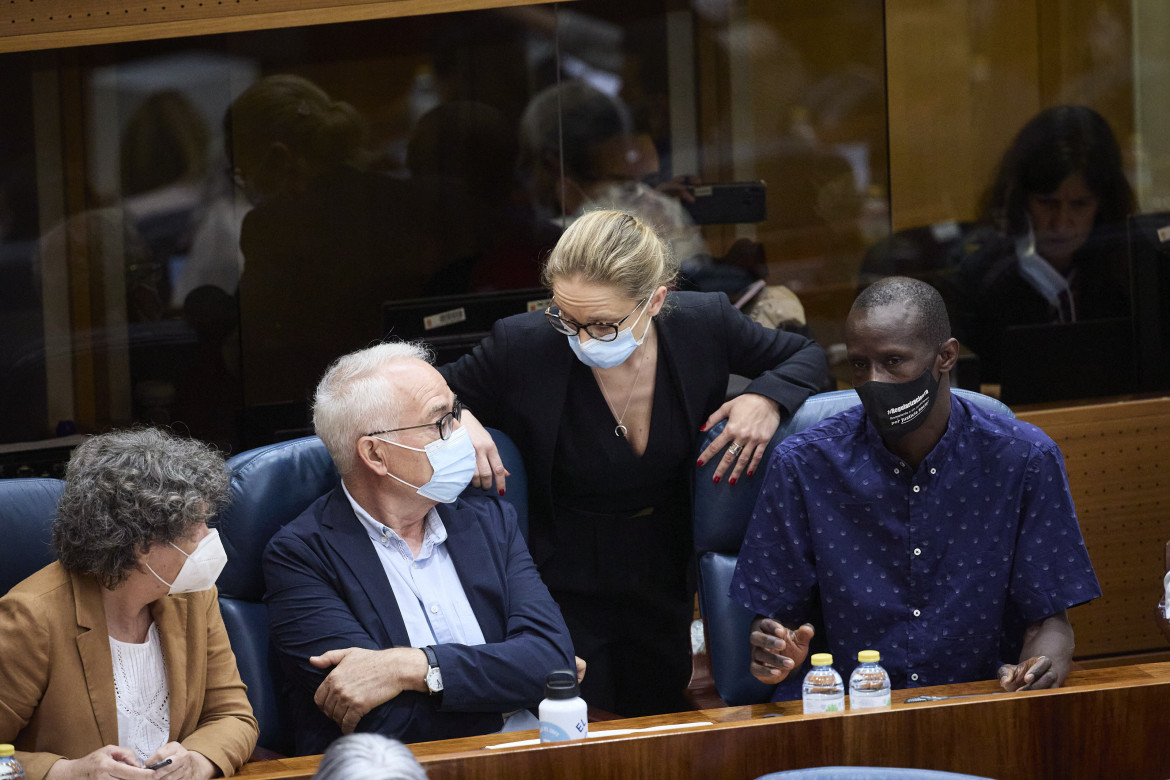Tensions were running high Friday in the parliament of the Autonomous Community of Madrid, during the debate for the installation of the new regional government, a month and a half after the elections of May 4. Rocío Monasterio, the spokeswoman of the ultra-far-right Vox party, whose votes were indispensable for the re-election of the incumbent president Isabel Díaz Ayuso (PP), delivered a speech that the newspaper El País, together with the digital newspaper El Diario, have called “the most extremist speech ever made in the Madrid Regional Assembly.”
Her tirade, featuring plenty of xenophobia and racism, culminated in a harsh attack against Senegalese-born councilor Serigne Mbayé, from Unidas Podemos, leader of the street vendors’ union: “Our problem with Mr. Mbayé,” the councilwoman said, “is not that he is black or white, tall or short, but that he is a person who entered our country illegally.”
“Racism has no place in Spain, or in this Assembly,” replied Mbayé, who had already been targeted by Vox since March: “We will deport him,” they wrote on the party’s official account, despite the fact that he is a Spanish citizen. Monasterio, a political leader who became known in the April election campaign in Madrid for her extremely provocative lines, not only refused to retract her statements, but doubled down.
Her message of hate casts a dark pall in a social context that shows worrying signs. Last Sunday, in the region of Murcia, located in the south of the country, one of the poorest in Spain and with a major presence of immigrants employed in agriculture, in a bar in Mazarrón, a retired ex-military man murdered a young Moroccan who rose up to defend a waitress and some friends from racist remarks made by the attacker. A few days later, a woman who was waiting in line at a food shop in the city of Cartagena stabbed another woman, screaming “They’re taking our food!” The woman was seriously injured, but her life is not in danger.
Murcia is the region where Vox, a party without political representation in Spain until 2018, got a large amount of votes in the 2019 general elections, and where it became indispensable for the regional right-wing government.
The attack on the Unidas Podemos councilman was not the only worrying element in yesterday’s speech in Madrid. The leader of the far-right party asked the PP, in exchange for Vox’s support of the Ayuso government, to eliminate the regional anti-discrimination laws protecting LGBTI people and the laws against gender violence. For months, Vox has refused to participate in the minute of silence that Spanish institutions are respecting following femicides: it has a denialist approach to a problem that has returned to the headlines in Spain in recent weeks, with new tragic episodes.
For the PP, the main party of the Spanish right, yesterday was an important day: it will remain at the helm of the region of the Spanish capital until 2023, where it has been governing for 26 years. At what price, however, remains to be seen. Ayuso’s victory on May 4 (45% of the vote) was clear, but his dependence on the ultra-right may become a problem for the party led by Pablo Casado—who, in the demonstration on Sunday, June 13 in Plaza Colón, Madrid, against the pardon of the imprisoned Catalan leaders, took great care not to be photographed next to the Vox leader, Santiago Abascal.

